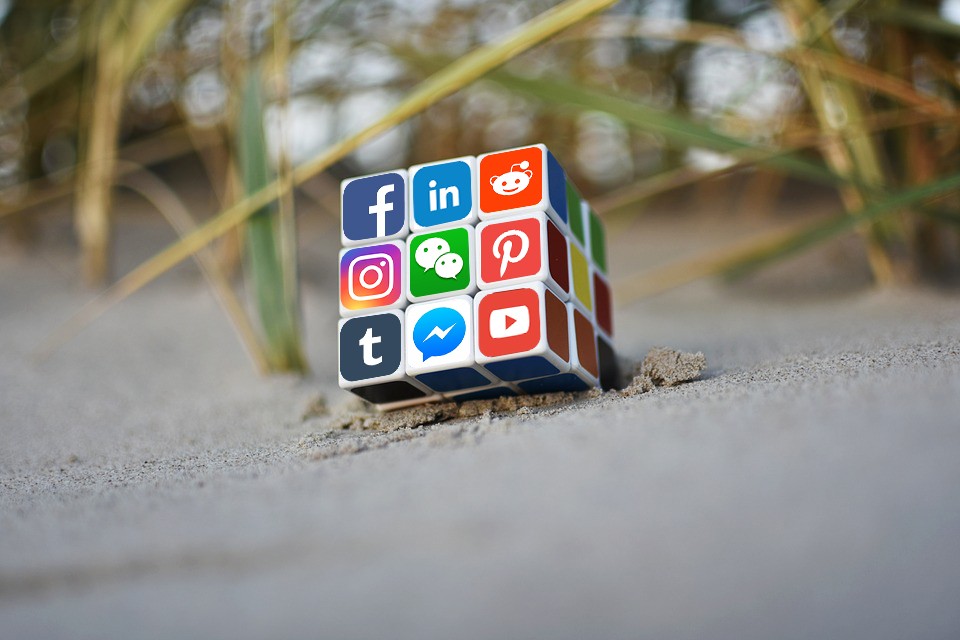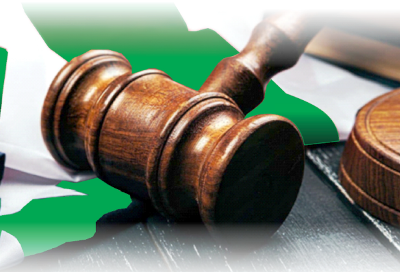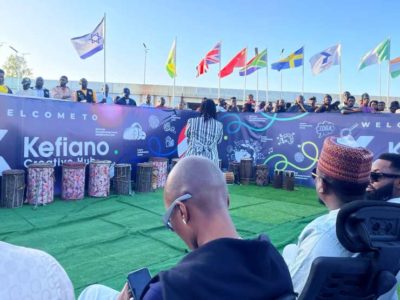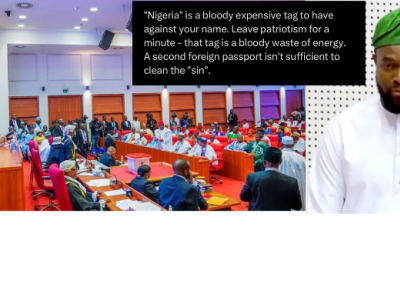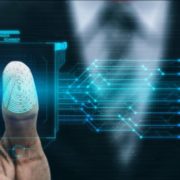Matters eRising with Olusegun Oruame
The Nigerian government has banned Twitter from operating in its national space having accused the social media platform of encouraging the dissemination of content that undermines its national security. The trigger for the suspension is the deletion of President Muhammadu Buhari’s ‘civil war’ tweet which the platform adjudged as negating its Rules.
The issues are complex but principally reflect the unfolding dynamics of how nation-states, business organisations and non-state actors are assuming new roles as determined by technology.
Since last year, particularly during the ENDSARS riots, Twitter and the Nigerian government have had a worsening relationship. Abuja has persistently accused Twitter of allowing seditious content on its platform targeting to undermine the corporate existence of the country.
Two days after deleting the president’s tweet, authorities in Abuja asked the country’s telcos and Internet service providers (ISPs) to unplug the micro blogging site. For now, you can only access Twitter services via VPNs.
Social media as threat to national security is a global challenge
Make no mistake, social media and over-the-top (OTT) media as threat to national security is not a Nigerian conception, it is a global challenge and the subject of many jurisdictions.
“The biggest security threat is from the select off-shore OTT communication service players [including Facebook and Twitter] which are highly capitalized, global monopolies and today control multiple million customers across continents,” said Principal Advisor (Network, Spectrum & Licensing) TRAI, India, U. K. Srivastava, in his report: Regulatory Frameworks of OTT Services in India published by the International Telecommunications Union (ITU).
With the increasing growth of the virtual world and shrinking physical spaces; and of course, the rise and rise of social media, there is a New World Order creating new economic powers, interrogating the traditional notion of sovereignty, and the attendant assumption of national security.
“There is a prevailing belief within the United States Department of Defense (DOD) that social media is a threat to national security, leading to restrictions in workplace use of social media applications,” notes the authors of the treatise: Is Social Media a Threat or Can It Be a Trusted Agent? The treatise was published by the University of Nebraska, Omaha, United States in 2016.
In his 2014 abstract: The Effects of Social Media on U.S. National Security, Timothy N. Whelpley, Missouri State University, offers similarly interesting insights.
He writes: “The new and spreading phenomenon of social media and its growing applications have many positive effects for the national security of the US. It may be used as a warning or prevention tool, in military campaigns, e.g., in the war on terror, and as an institutional communication tool. However, social media may also hinder national security. It plays a controversial role in information warfare, may be used as a recruitment tool by terrorists as well as by criminals and hacktivists for purposes of misinformation and spreading uncontrollable threats. Options for dealing with these challenges are as varied as they are controversial. They range from regulating the Internet to leaving social media free of any controls.”
RELATED
Will Nigeria Be Losing Over N2b Daily As Long As Twitter Remains Banned?
Nigerians Turn To VPNs To Bypass Government Twitter Ban
Nigeria Triggers Social Media War, Suspends Twitter As Facebook Also Deletes President’s Civil War Post
Global Digital Population Hit 4.8b In 2020, Almost 300m Increase In A Year
The World Will Not Be Destroyed By Fire Or Virus (But By Fake News)
Nigerian Government Begins Monitoring Social Media To Tame Hate Speech
In a 2019 case study narrowed down to social media and national security threats in Kenya, Julius Kimutai notes: “that terrorist groups take advantage of social media to communicate with cyber-crime groups and to coordinate along with them fund-raising activities carried out in part or completely on the Internet…. social media are also used by Islamist groups for propaganda activities aimed at making public successful terrorist attacks, and, consequently, throwing civil population into a panic.” (http://erepository.uonbi.ac.ke/handle/11295/76667)
Nigeria faces dilemma to fight insurgents and tame social media
The Buhari administration has been contending with similar threats irrespective of how efficient it has been managing it. Nigeria faces persistent threats from social media and government’s dilemma has been how to fight insurgents, secessionists, bandits and tame social media.
“The rapid growth of OTT services has raised a number of national policy issues relating to regulatory imbalances and security concerns that need to be addressed” – Srivastava.
let me share this very interesting 2018 submission by Joshua Ebere Chukwuere and Chijioke Francis Onyebukwa with the title: The Impacts of Social Media on National Security: A View from the Northern and South-Eastern Region of Nigeria.
The authors submit: “The social media (SM) platform has reengineered social interaction among peers, businesses, governments and so on. SM platforms are used in advancing social and national insecurity, such as the situation in the northern and south-eastern parts of Nigeria. For some years now, terrorism and propaganda have engulfed the northern part of Nigeria by insurgent groups while separatist groups have also carried out demonstrations in the south-east. Each of these groups is using various kinds of online media to propagate their agenda, and the general public also uses SM platforms to escalate this propaganda, which sometimes is fake news.”
Abuja has lived with the nightmare of social media having not been able to build a formidable digital team to counter insurgents online. Perhaps, much more importantly, Abuja has had to contend with the frustrations of millions of citizens who leverage social media platforms to express pent -up bitterness, hopelessness and relentless angst.
India begins implementing new rules for social media
Last week, the world’s largest democracy, India started implementing new rules framed to hold social media, OTT accountable for content published through the operators’ platforms.
Whether social media or OTT should be regulated or self-regulating has been a recurring debate and increasingly, governments, whether in Europe or in Asia, are turning the heat on social media platforms.
India’s new rules: ‘Guidelines for Intermediaries and Digital Media Ethics Code’ set a regulatory precedence to supervise social media platforms, over-the-top (OTT) service providers and digital content providers in a way that makes the operators accountable for whatever is published on their platforms and deemed to be offensive to individuals, statutory organisations or state entities.
While social media platforms may have their own rules or so-called Community Standards, India is demonstrating clearly that states are not about to concede their supreme duty to create and enforce laws even for virtual operators and their digital citizens.
In Germany, the Network Enforcement Act (the NetzDG law), is aimed at combating agitation and fake news in social networks. Other European Union (EU) countries have similar statutes.
The dilemma for many countries has always been how to regulate social media without going the way of China or Iran and such other dictatorial states where social media are banned and citizens’ rights to free expression is muzzled.
India appears to have found a way around it. Its new frameworks are likely to be prototype for the future of social media and OTT in Nigeria. The Minister of Information and Culture, Lai Mohammed, has already asked the National Broadcasting Commission (NBC) to work out the new guidelines for this sub-sector.
Let me borrow extensively from a last week report of the Tech HindustanTimes.
“As a part of the new rules, digital media will have to observe Norms of Journalistic Conduct of the Press Council of India and the Programme Code under the Cable Television Networks Regulation Act.
“Print media has Press Council & they follow its ethics code but digital media portals have nothing to follow but now we have changed this as all media platforms must have same justice system & they need to follow the Ethics Code as laid down by the Press Council,” Minister of Information and Broadcasting Prakash Javadekar said.
“Publishers in India will have to establish a three-level grievance redressal mechanism. In such a system, the first level would be self-regulation by the publishers, while the second level would be self-regulation by the self-regulating bodies of the publishers. The third level, on the other hand, would be an oversight mechanism.
Also, “As per the new rules OTT platforms such as Netflix, Amazon Prime Video and Zee5 will have to self-classify the content into five age-based categories – U (Universal), U/A 7 years, U/A 13 years, U/A 16 years, and A (Adult).
“OTT platforms will also have to provide a mechanism of parental lock in their services.”
End of free reign
India’s new rule is helping to address some of the fundamental concerns that have attended the rise of social media and OTT whether politically, socially or as purely business organisations. Social media and OTT not only pose security challenge , they have re-written the rules for taxing traditional, legacy operators and created a bewildering matrix for regulators in other jurisdictions outside of where they are originally domiciled on how to rein in their profits.
How does the Nigerian government tax Twitter or Facebook? As is the case in other jurisdictions, there is still an ongoing debate on how to best tax the local businesses – SMBs, powered by these offshore social media platforms.
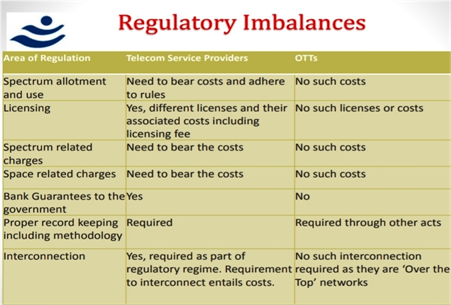

Srivastava has helped to project the significant lines between OTT media and traditional telecom service providers. For many industry observers, social media ride on the back of legacy operators, make huge profits, give little back; curate content generated by others; control huge number of subscribers outside of their country of origin; increasingly administer economic and political powers that make them dangerously influential more than governments of those countries whose economies are insignificant compare to the financial power of bohemian tech giants like Facebook and Twitter.
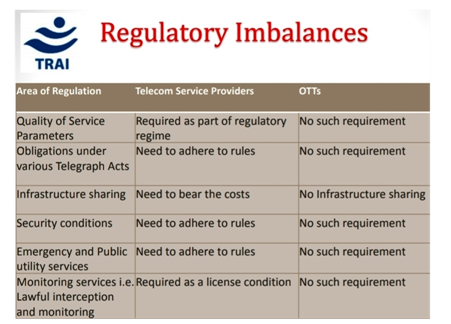

“The rapid growth of OTT services has raised a number of national policy issues relating to regulatory imbalances and security concerns that need to be addressed. The regulatory imbalances need examination at various levels by different agencies of government,” said Srivastava.
OTT includes applications and services which are accessible over the internet and ride on operators’ networks offering internet access services. Whether they are delivered as “communications, video content, or application eco system, OTT media “have three broad public policy issues namely “regulatory imbalances; impact on economy and security issues.”
Because most of the OTT players operate from outside their country of origin, there are issues of cultural sensitivity and diversity as well as loss of content privacy and compromised cyber security leading to cybercrimes. The social media nightmare has been endless for the Nigerian government faced with a plethora of challenges many of which are of its own making.
The adamancy and somewhat arrogance of Twitter (the platform has also questioned the authority of New Delhi to impose the new rules) may have only helped to trigger series of regulatory actions Abuja has been seeking to push; and happening at the time India is applying the heat, Nigerians must prepare for the dawn of social media regulation.
COVER IMAGE: The Geopolitics


